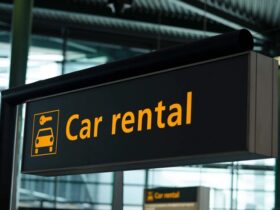Renting an apartment can come with a range of costs, some of which might not be immediately apparent. These hidden fees when renting an apartment can add up quickly and affect your overall budget. Whether you’re moving into a new place or renewing your lease, understanding these hidden costs is crucial for financial planning.
In this article, we’ll explore the most common hidden fees renters face, how to identify them before signing your lease, and what strategies you can use to negotiate or avoid these extra costs. From application fees to maintenance charges, we’ll break down the fees you should know about to avoid surprises and make your rental experience as smooth as possible.
What Are Hidden Fees When Renting an Apartment?
Hidden fees are costs associated with renting that are not immediately disclosed or are only revealed after you’ve signed the lease. These fees can include one-time charges and recurring monthly costs that can significantly affect your rental budget. While some of these fees are reasonable or necessary, others are less transparent and can often be avoided or negotiated.
Standard hidden fees include:
- Application Fees: Many landlords or property management companies charge an application fee to process your rental application. This can range from a small fee to several hundred dollars, depending on the location.
- Pet Fees: Pet owners should be aware of pet deposits, monthly pet rent, or both. These fees can add up quickly and vary depending on the size or breed of the pet.
- Utility Fees: Some rental properties do not include utilities in the rent, leaving tenants responsible for covering water, electricity, and gas bills, which can be a significant additional cost.
- Parking Fees: In urban areas or gated communities, parking might not be included in your rent. Many places charge separately for parking spots or garage spaces.
- Maintenance Fees: Some landlords charge tenants for maintenance services, especially if there’s an issue with the property that’s technically the tenant’s responsibility.
- Cleaning Fees: While landlords are responsible for ensuring apartments are in good condition, they may charge tenants for cleaning fees after moving out, especially if the unit isn’t left in pristine condition.
If you’re looking to avoid unnecessary expenses, use tools like Date time calculator to manage rental payment schedules or keep track of important deadlines related to lease renewals or payments.
How to Spot Hidden Fees When Renting an Apartment
Hidden fees can significantly increase your rental costs, so it’s crucial to spot them before signing your lease. Here are key steps to ensure you’re not caught off guard.
Review the Lease Agreement Thoroughly
The first step to identifying hidden fees when renting an apartment is carefully reviewing the lease agreement. Landlords are legally required to disclose any fees that will be charged, but they may include them in less noticeable areas. Pay special attention to sections about deposits, utilities, and additional services.
Ask Direct Questions
Before signing a lease, ask your landlord or property manager directly about any fees that are not included in the rent. Be sure to ask about maintenance, parking, pet, and other potential charges.
Compare Similar Properties
Take the time to research similar rental properties in your area. Comparing rental terms, including fees, can help you gauge whether the charges are reasonable or inflated. You might also discover that other places in your area offer better value for the same price.
Look for Red Flags
If a landlord is reluctant to disclose specific fees or makes it difficult for you to get clear answers, that could be a red flag. Transparency is essential, and if a landlord seems evasive, it’s worth reconsidering whether that property is the right choice.
How to Negotiate or Avoid Hidden Fees When Renting an Apartment?
Negotiating or avoiding hidden fees may seem challenging, but some strategies can help. Here are some tips on how to avoid or reduce unexpected costs:
- Request All Fees in Writing: Make sure to get a detailed list of all fees in writing before you sign anything. This will ensure there are no surprises after you’ve moved in.
- Negotiate Pet Fees: If you have a pet, negotiate pet fees upfront. Offer to pay a larger deposit instead of monthly pet rent, or ask for a waiver of some charges if your pet is well-behaved.
- Negotiate Parking Fees: If parking is required, ask whether there’s any way to reduce the fee or have a spot included with your rent.
- Challenge Unreasonable Fees: If your landlord charges excessive cleaning or maintenance fees, challenge them. If these fees are not clearly outlined in the lease, you may have the option to dispute them.
- Look for Renters with All-Inclusive Fees: Some landlords include all utilities and services in the rent price. Consider renting from a property with an all-inclusive fee structure to avoid additional hidden costs.
Being proactive and asking questions can help you manage these costs effectively. Additionally, tools like zalgo can help you navigate complex lease terms or convert documents into easily readable formats, ensuring you don’t miss any hidden charges in the fine print.
Legal Protections Against Hidden Fees When Renting an Apartment
Renters have legal protections against hidden fees in many states. Landlords are required by law to disclose all fees upfront. If a landlord fails to disclose these fees or tries to charge unreasonable amounts, tenants can take action. Here’s what you should know:
- Full Disclosure Laws: Many states require landlords to disclose all fees in the lease agreement fully. If fees are not listed, tenants may be able to refuse to pay them.
- Fair Housing Laws: Landlords are also prohibited from charging fees that discriminate against certain groups, including those based on race, disability, or familial status.
- Small Claims Court: If a landlord refuses to refund hidden or unreasonable fees, tenants can often take the matter to small claims court.
If you’re unsure about your rights, it may be worthwhile to consult with a tenant’s rights organization or a legal professional for guidance on how to handle unfair charges.
Avoiding Hidden Fees with Smart Apartment Hunting Tips
Compare Multiple Listings
When searching for an apartment, be sure to compare multiple listings in your area to see how each property handles fees. Pay attention to the total cost of living, including rent, utilities, and additional fees.
Consider Subleasing
Subleasing an apartment can save you from hidden fees, as the original tenant may have already negotiated terms that are favorable to you. However, be sure to check the lease for any restrictions regarding subleasing.
Look for Transparent Landlords
Some landlords are more transparent than others. Look for properties where fees are clearly outlined and where the landlord is open to discussing all potential charges before you sign anything.
Final Thoughts
Hidden fees when renting an apartment can significantly impact your budget if you’re not careful. By understanding what fees to look for, doing your research, and negotiating terms with your landlord, you can minimize these costs. Always read the lease agreement carefully, ask for full disclosure of fees, and be proactive about challenging unreasonable charges. Being informed and prepared can help you secure a rental agreement that meets your needs without unexpected financial burdens.
FAQ’s
What are the standard hidden fees when renting an apartment?
Standard hidden fees include application fees, pet fees, parking fees, maintenance charges, and utility costs that are not included in the rent.
How can I spot hidden fees when renting an apartment?
Carefully review the lease, ask about all possible charges, and compare similar properties in your area to understand market pricing better.
Are hidden fees legal when renting an apartment?
Hidden fees are legal as long as they are disclosed upfront in the lease agreement. If they aren’t disclosed or seem unreasonable, you may be able to challenge them.
Can I negotiate hidden fees with my landlord?
Yes, you can negotiate specific fees, especially if you’ve been a reliable tenant. Be sure to request all fees in writing and ask for reductions if necessary.
How do I avoid hidden fees when renting an apartment?
Avoid hidden fees by doing thorough research, comparing listings, and negotiating terms before signing the lease. Always get a full breakdown of all fees in writing.
What should I do if I’m charged hidden fees after signing the lease?
If unexpected hidden fees are charged, try negotiating with your landlord. If the issue is not resolved, consider seeking legal advice or contacting tenant advocacy organizations.











Leave a Reply